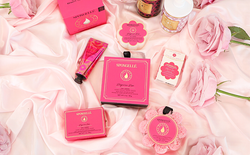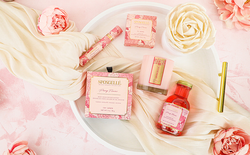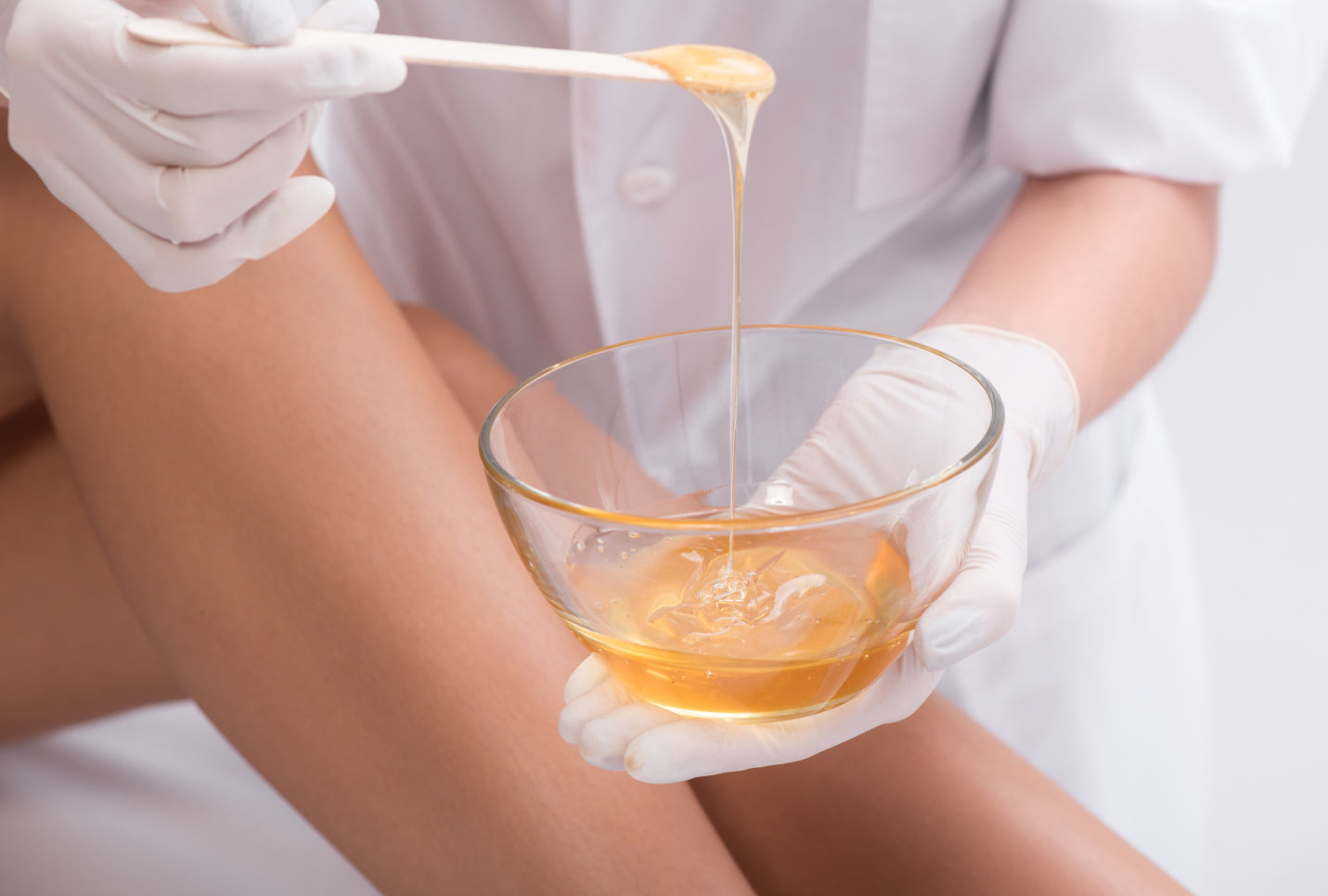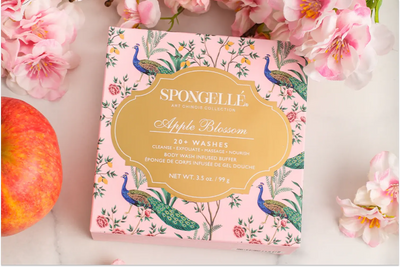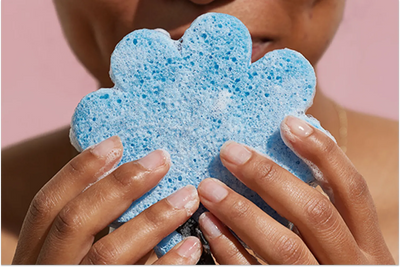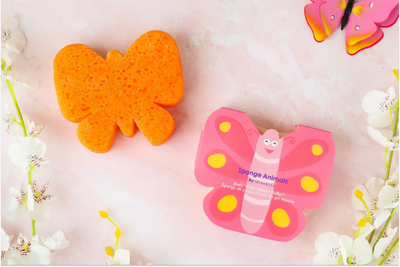Oh, the joy of waxing! That silky-smooth feeling and the joy of skipping the razor for weeks are truly unmatched. But then comes the dreaded aftermath — those pesky, painful ingrown hairs that pop up just when you're relishing your hair-free days.
We’ve been there. But don’t worry — we have a game plan to help tackle this annoying side effect head-on, and by the end of this article, you'll be well-equipped to bid adieu to those ingrown hairs for good.
What Are Ingrown Hairs?
So, let's start with the basics, shall we? Ingrown hairs are those small, stubborn little bumps that make your otherwise flawless skin look like a tiny mountain range. Simply put, they're hairs that, instead of growing up and out of your skin like they should, decide to curl back or grow sideways under your skin — so inconsiderate!
And why do we experience these unruly hairs more after waxing? Well, when we wax, we yank the hair out from the root. This means new hair has to grow in its place. But sometimes, this new hair can't break through the surface of the skin and gets trapped. This is even more common when the hair is thick or curly.
Why Are Ingrown Hairs an Issue?
Apart from crashing your smooth skin party, these little nuisances can cause more trouble than you think. On the surface, they lead to bumps and redness, which isn’t the look you were going for post-waxing. They can also itch like nobody’s business, and let's be honest — no one enjoys that.
But here's the kicker. If you can't resist the urge to pick or scratch these ingrown hairs (we've all been there), you run the risk of causing an infection. And in the worst-case scenario, untreated ingrown hairs can lead to hyperpigmentation (darker skin patches) or even scarring.
In short, we want to keep these hairs far away from our skin.
How Can You Prevent Ingrown Hairs After Waxing?
Let’s get right to the root of it: how to keep those pesky ingrown hairs at bay before, during, and after your waxing sessions. You've got this!
Pre-Wax Tips
Getting your skin ready for waxing is like laying the foundation for a smooth, flawless result. It's all about treating your skin with the care it deserves. Here are the steps to keep in mind:
- Exfoliate
Imagine you’re a gardener, and your skin is your soil. To help the beautiful flowers (or, in this case, new hair) grow, you gotta clear away the debris first. Exfoliation removes dead skin cells, making it easier for new hair to push through.
Spongellé's Body Wash Infused Buffers, loaded with B vitamins, amino acids, and yuzu extracts, can be your tool of choice here. By offering gentle yet effective exfoliation, as well as packing a punch with natural cleansing ingredients and a time-released, creamy lather, they ensure your skin is prepped and primed for waxing.
Plus, our custom-blended fragrances turn a simple shower into a refreshing aromatic journey. Now, that's what we call a win-win.
- Moisturize
After your skin has been cleared of any dead cells, it's time to quench its thirst. Moisturizing is an important step, as it can leave your skin less prone to redness and bumps post-waxing.
So, grab your favorite Spongellé nourishing lotion enriched with shea butter, jojoba butter, and vitamin E. These magic ingredients hydrate your skin, leaving it supple, soft, and ready for the wax.
- Be Mindful of Proper Hair Length for Waxing
Remember, your wax needs something to work with. For the wax to properly grip the hair, your hair should ideally be about ¼ to ¾ inch long. If it's shorter, you risk the wax not adhering properly, which can lead to hair breakage and, potentially, ingrown hairs.
Mid-Wax Tips
Alright, you've prepped your skin, and now it's showtime. Let's talk about what you need to keep in mind during the waxing process itself.
- Technique
It's all in the wrist! When you're pulling off the wax strip, do it in the opposite direction of your hair growth. Keep the pull close to the skin — think of it as a swift, smooth movement rather than a quick yank upwards. This helps prevent breaking the hair below the skin surface, reducing the chances of ingrown hair.
- Waxing Product Selection
Be picky with your wax. Choose a waxing product that suits your skin type and isn't too harsh. Remember, sometimes, it's worth investing a bit more for a product that's high-quality and designed for your unique skin concerns.
Post-Wax Tips
Post-wax care is as important as pre-wax prep. Here's what you can do to keep your skin happy and healthy after waxing.
- Soothe the Skin
Waxing can leave your skin feeling a tad sensitive. It's like your skin just ran a marathon and now needs some TLC. To show your skin some love, moisturize immediately after waxing when your skin is still in recovery mode.
Spongellé's moisturizers, packed with soothing ingredients like shea butter and vitamin E, are up to the task, helping your freshly waxed skin feel relaxed and cared for.
- Continued Exfoliation
Stay committed to gently exfoliating even after waxing. While it may seem counterintuitive, your skin needs to slough off dead cells and make way for the new hair to break through easily.
Aim to exfoliate about two to three times a week, depending on your skin type. Reach out for your favorite Spongellé body wash infused buffer and let it work its magic. Its gentle exfoliation can keep dead skin cells from clogging up the pores and paving the way for ingrown hairs.
- Stay Hydrated
Finally, remember the hydration mantra: inside out! Not only should you hydrate your skin with nurturing natural ingredients, but you should also drink plenty of water to keep your body — and by extension, your skin — hydrated.
Drinking enough water can help maintain your skin's natural balance and encourage brighter and resilient skin. When you're well-hydrated, your skin is too, which can allow new hair to break through the skin easier.
In a nutshell, a consistent skincare routine is the key to avoiding ingrown hairs. With these tips in your arsenal and Spongellé's luxurious products by your side, wave goodbye to post-waxing bumps and embrace a smoother, more comfortable you.
When To Seek Professional Help
Alright, we've gone through a bunch of tips and tricks to keep your skin looking smooth and bump-free. But sometimes, despite our best efforts, things can get a little prickly.
Even after following all these excellent self-care tips, it's crucial to remember that sometimes, you might need to seek professional help. How do you know when?
Look out for any persistent red, inflamed bumps that are tender to the touch. If these symptoms stick around or get worse, or if you notice pus or significant discomfort, it's time to let a professional step in.
Skin professionals, like dermatologists, have the expertise to accurately diagnose the issue and provide specific treatments tailored to your situation. They may suggest anything from topical antibiotics to retinoids to remove dead skin cells or even steroid creams to help reduce redness and irritation.
Remember, while at-home remedies can work wonders, you should never hesitate to seek professional help when needed. After all, your skin health is super important!
Your Silky-Smooth Future Awaits You
Waking up to itchy ingrown hairs in the aftermath of waxing is undoubtedly frustrating, but with the right know-how and proactive measures, such discomfort becomes a thing of the past.
When it comes to preventing these prickly intruders, the golden rule stands out: preparation and aftercare are key.
With these tips and tools in your waxing arsenal, you’re ready to experience the luxury of self-care yourself. Dive into the dreamy world of Spongellé, where we offer more than just products — we provide experiences.
It's time to turn your everyday bathing routine into a lavish, aromatic adventure. Go ahead, treat yourself – your skin (and your spirit) will thank you for it.
Sources:
Ingrown Hair: What It Looks Like, Causes, Treatment & Prevention | Cleveland Clinic
Dietary water affects human skin hydration and biomechanics | PMC
Hair removal: How to wax | American Academy of Dermatology Association


